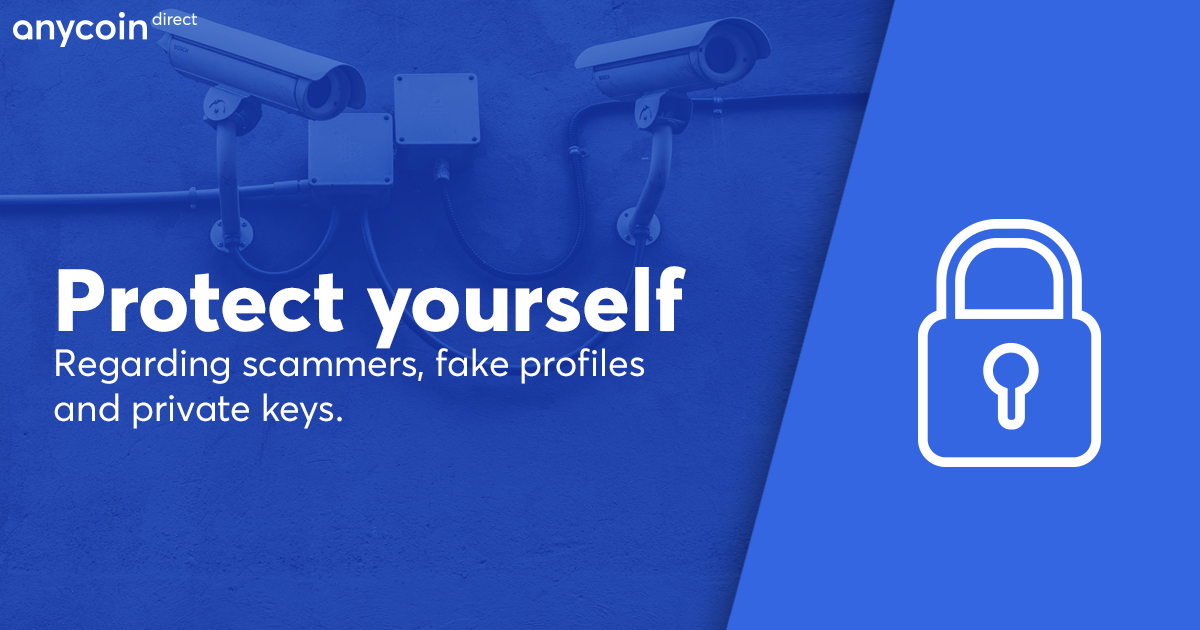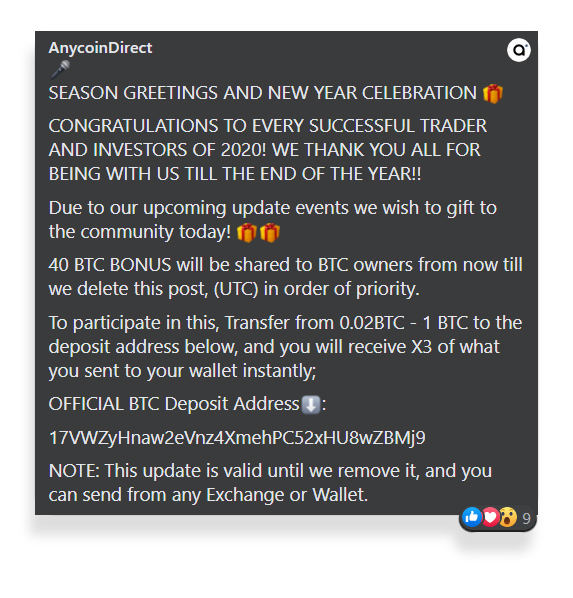Protect yourself - Regarding scammers, fake profiles and private keys
- 5 minute read

The world of cryptocurrency is relatively new and can seem quite complicated. Therefore, there are always people who try to take advantage of others. How does these things happen? With new trendy ways scammers are getting more and more creative to swindle people. Methods such as phishing and extortion, are unfortunately still a small part of the crypto community. In this blog, we are going to address several methods We encounter on a daily basis. With these tips, we hope to prepare you as best as we can.

Crypto Giveaways
Let’s talk about crypto giveaways. You know, messages like ‘send 2 BTC to this address, and get 4 BTC in return’. In the comment section of just about every crypto service social media page, you will find fake accounts claiming that they will give away coins. These free giveaway messages are posted by fake accounts, usually followed by other fake accounts claiming that they won something. An example of this is shown below. In the example you can clearly see the scammers imitating Anycoin Direct, asking if people want to earn free Bitcoin. All you need to do is transfer a specific amount to their address. For some people this might go without saying, but 99.99% off all crypto brokers and exchanges will never ask to send crypto via their social media channels. Never ever. Crypto brokers and exchanges will never ask to send BTC to an address to double up your money. Please, be careful with these giveaways and report them immediately.
Example of a fake account, commenting on our social media:

@ummjackson if you can help get rid of the annoying scam spammers, that would be much appreciated
— Elon Musk (@elonmusk) September 17, 2018
Don't try this at home
During the last two busy months, our verification team has seen a sharp increase of customers sending us their private keys. A private key is an encrypted alphanumeric code that gives access to your bitcoins and cryptocurrencies. It is the only way to prove that you are the owner of your coins. Do not share your private key with anyone! If you share a private key with any other than yourself, you risk the possibility of your coins being stolen. you will lose control of your coins. Sending your private key is like sending your ATM card and PIN number at the same time.
Protect yourself
Scammers are unfortunately still part of the crypto community. But with the right knowledge, you can protect yourself against them. Always make sure that you do not just pass on your private key or passwords to anyone. Even if you trust that person, their hardware may have been hacked and the criminals can follow you as you go. For this reason, having good passwords, using a 2FA Authenticator and having a hardware wallet are excellent means of prevention against people with bad intentions.
Before you start trading in cryptocurrency, make sure you are well informed and prepared. Find reliable guides and instructions on how to properly secure your account. Watch tutorials of how to buy and sell coins. Or go to our info pages to do some additional research.
Read all you need to know on our Bitcoin Overview Page.


